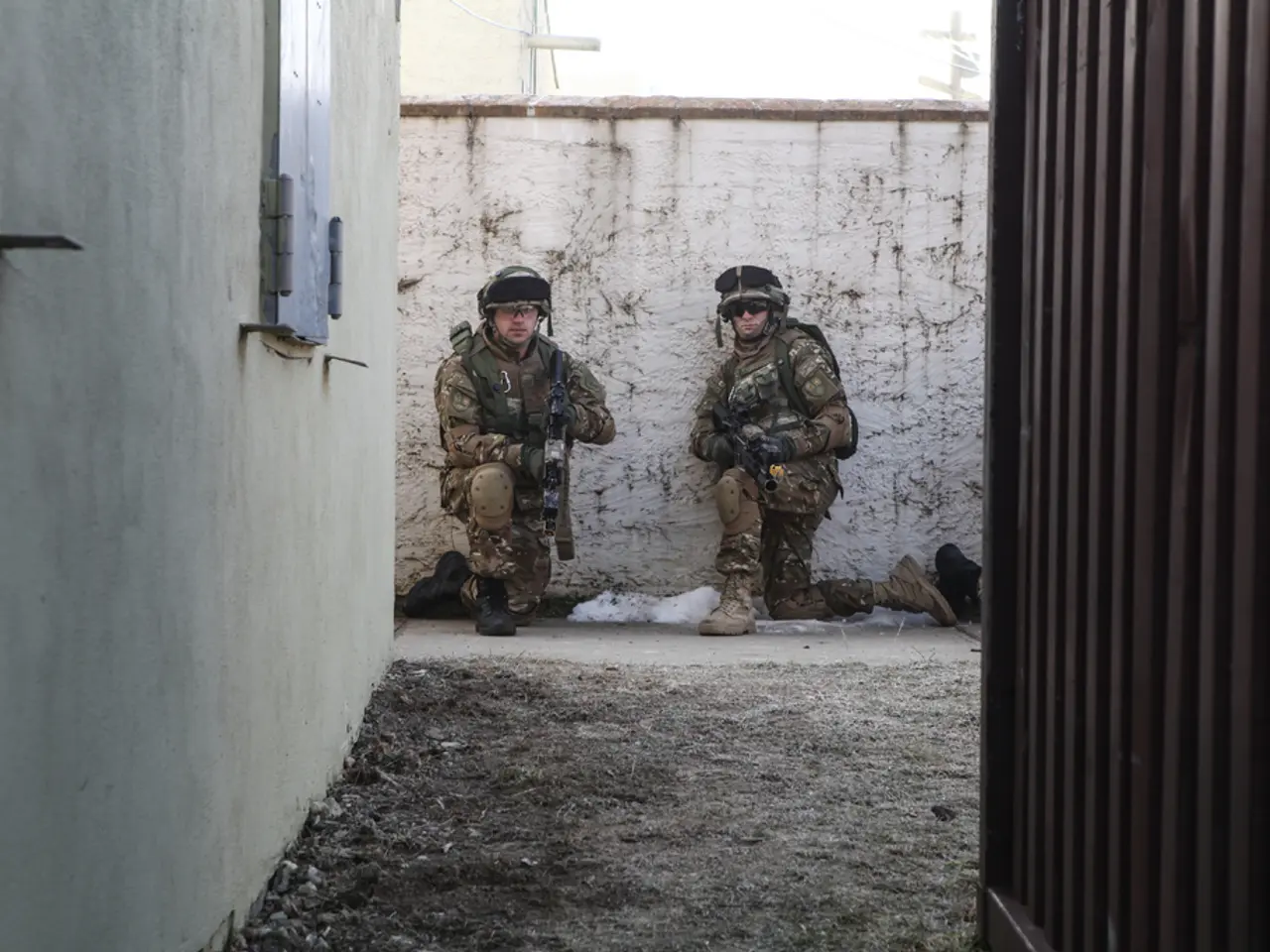Germany has no room for anti-Semites, according to former transport minister Alexander Dobrindt. - Germany's Dobrindt denounces antisemitic sentiment, stating it's unwanted in the nation.
In recent years, Germany has witnessed a concerning increase in antisemitic incidents, with the number of recorded cases reaching an all-time high. This surge, according to Federal Interior Minister Alexander Dobrindt (CSU), is primarily driven by far-right extremism, although imported antisemitism, often linked to Islamist motives, also plays a significant role.
Last year, a total of 6,236 antisemitic crimes were reported nationwide, marking a 20% increase from the previous year. The first three months of 2025 saw an even more alarming trend, with 1,047 antisemitic cases, including 267 linked to foreign and Islamist ideologies, and 554 attributed to far-right motives.
The rise in imported antisemitism, while often associated with immigrant communities from the Middle East, is not the primary source of violent attacks. In fact, most violent antisemitic attacks are committed by far-right ethnic Germans, with imported antisemitism serving as a subject of political and media focus.
Berlin, in particular, has been hard-hit, recording 1,383 antisemitic incidents in the first half of 2024 alone, the highest annual rate recorded there since tracking began. Types of incidents range from verbal abuse and hate speech to physical assaults, vandalism, and attempted arson.
In response to this trend, German authorities have stepped up their efforts. The Federal Criminal Police Office (BKA) has increased investigations and public reporting on antisemitic crimes. The government has also established antisemitism commissioners and data collection centers to coordinate responses and improve documentation.
Calls for comprehensive educational programs, victim protection, and tackling all forms of antisemitism, including local and historical roots, have been emphasized to complement policing efforts. Specific protection measures have been deployed for vulnerable groups, such as Jewish sports teams attacked in hostile neighborhoods.
Political figures, including Dobrindt and Saxony-Anhalt's Minister-President, Reiner Haseloff (CDU), have cautioned against framing antisemitism solely as an immigrant/imported problem, highlighting the necessity to address far-right extremism as the major driver.
Dobrindt has been vocal in his stance, stating that it is a legitimate goal to destroy Hamas in the Gaza Strip with military means, while also emphasizing that those who incite anti-Semitism are not welcome in Germany. He has also stressed the need for increased cybersecurity, as he is scheduled to meet with helpers from the Technical Relief Agency (THW), federal police officers on duty, and visit a company that needs protection against cyber attacks during his summer tour.
The attack on a synagogue in Halle during Yom Kippur in 2019, which resulted in the murder of two people near the synagogue, underscores the urgent need for action. The chairman of the Jewish community in Halle, Max Privorozki, expressed less sympathy for the city's response after the attack compared to the sympathy shown after terrorist attacks in Israel.
As Germany grapples with this surge in antisemitism, it is clear that a multi-faceted approach is required to address this complex issue, with a focus on education, protection, and law enforcement.
- Despite the significant role imported antisemitism, often linked to Islamist motives, plays in the rise of antisemitic incidents in EC countries like Germany, far-right extremism remains the primary driver of this concerning trend, as indicated by Federal Interior Minister Alexander Dobrindt.
- As politics and general news surrounding antisemitism continue to dominate headlines, it is crucial to address not only imported antisemitism but also far-right extremism to effectively combat the surge in antisemitic crimes, a point emphasized by political figures such as Reiner Haseloff, Minister-President of Saxony-Anhalt.
- As Germany strengthens its law enforcement efforts and implements comprehensive educational programs against antisemitism, it is equally important to focus on providing protection for vulnerable groups, such as Jewish sports teams, to ensure their safety and promote a harmonious, prejudice-free society in the face of war-and-conflicts and crime-and-justice issues.






